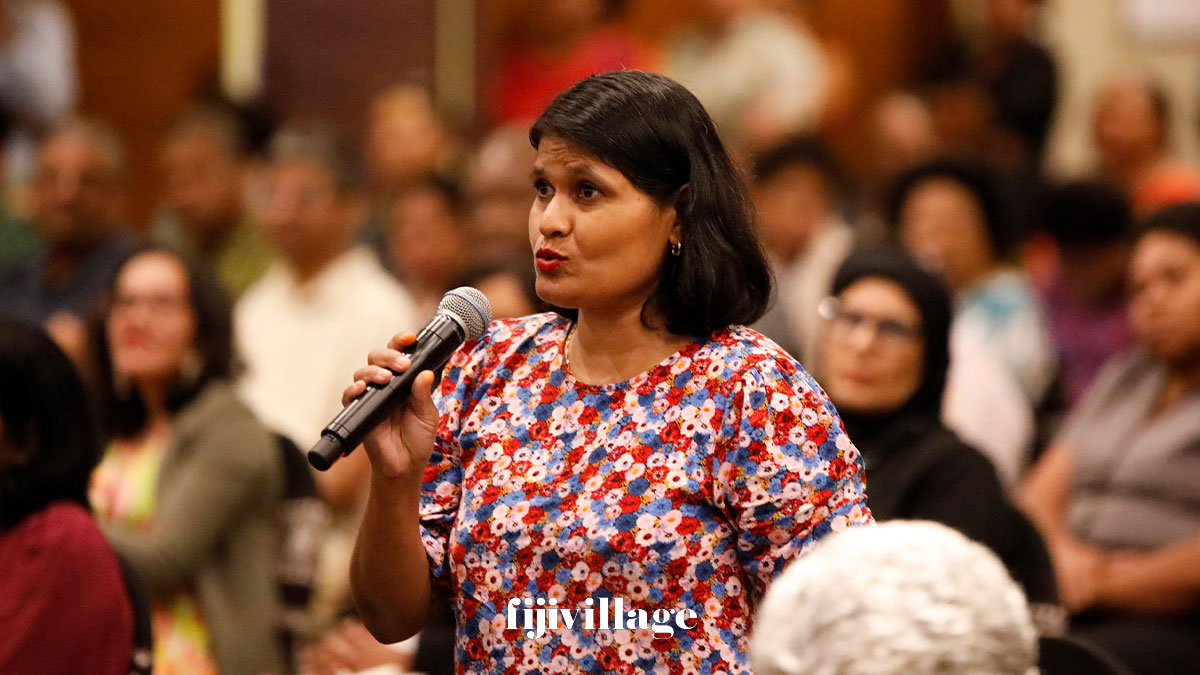
The ballot paper needs to be made user friendly by having names and pictures of candidates and party symbols for the separate constituencies and the non-ethnic based one-person one-vote should be retained.
Fiji National University’s Department of Ethics and Governance lecturer Dr Mosmi Bhim has made these submission to the Electoral Law Reform Commission during consultations.
She also says Single National Constituency is unfair on political candidates as they do not have sufficient resources to campaign in the whole country.
Dr Bhim says it favours well-known personalities and leaders so it needs to be removed and replaced with constituencies.
She says constituencies will make campaigning fairer for candidates and easier to electorate to hold the elected accountable.
The lecturer says when a parliamentarian resigns, the seat should not go to the next person in the list but a by-election should be held for the seat.
Dr Bhim also submitted that highest voter getters should enter parliament and having constituencies will prevent the coat-tail effect of passing on votes to candidates with low number of votes.
She says constituencies will prevent accumulation of high votes by one candidate.
The lecturer further says the 5 percent threshold for total number of votes to get into Parliament is unfair and unjust.
She says it is unfair that Savenaca Narube of Unity Fiji got close to 7,000 votes and Fiji Labour Party’s Mahendra Chaudhry with close to 6,000 votes did not get a seat in Parliament while candidates with less than 1,000 votes became MPs.
She submits there should be no threshold to enter parliament and if there is a threshold, it should be reduced to 1 percent.
Dr Bhim further says 30 percent quota for women should be implemented as 1 in 3 women are victims of domestic violence and sexual abuse, and women bear higher burden of unpaid care work.
She also says the Rotumans need to be recognized as an indigenous ethnic group whose language, culture and identity are endangered of being wiped out and a seat should be reserved for Rotumans.
Dr Bhim stresses it is the responsibility of the mainstream majority ethnic group – the iTaukei – to protect the marginalized minority indigenous Rotumans and ensure their land, culture and language are preserved.
She further says serving prisoners and mental institute in-patients should be allowed to vote as human rights to equality and non-discrimination applies here.
The lecturer says serving prisoners should not be allowed to stand in elections and for persons who served 12-months or higher jail term should be barred from contesting elections for eight years is unfair.
Dr Bhim says this should be removed or reduced to one parliamentary term of four years.
Public consultations on the review of the Electoral Act 2014, the Electoral (Registration of Voters) Act 2012, and the Political Parties (Registration, Conduct, Funding and Disclosures) Act 2013 is expected to continue this week.
Stay tuned for the latest news on our radio stations

